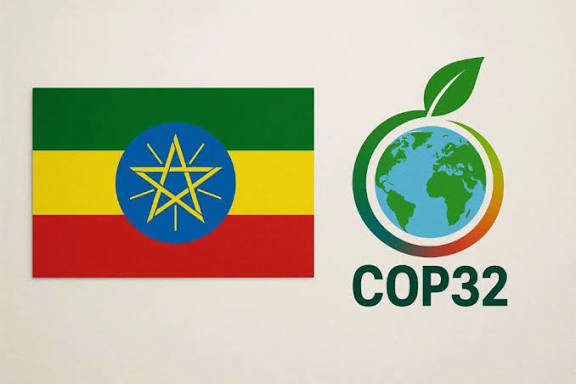Ethiopia has emerged victorious, securing the right to host the 32nd United Nations Climate Change Conference (COP32) in 2027.
This decision, unanimously backed by the African Group of Negotiators (AGN) at the ongoing COP30 in Brazil, means that Nigeria has lost the bid to host COP32 despite its earlier expression of interest.
The announcement, which is expected to be formally adopted by the UNFCCC, resolves a months-long competition between the two African powerhouses.
While Nigeria was the first to announce its bid to host COP32, campaigning on the strength of Lagos State as a dynamic megacity, climate campaigners and African negotiators favored Ethiopia’s readiness.
In March 2025, Nigeria announced its interest in hosting the COP32. The country’s interest picked up pace after a visit by Simon Stiell, executive secretary of the United Nations Framework Convention on Climate Change (UNFCCC).
In an X post, the federal ministry of environment said, “hosting the UN COP will provide several strategic benefits to Nigeria, including emphasising priority areas in climate action at both continental and national levels”.
During the second Africa climate summit in Ethiopia, Prime Minister Abiy Ahmed announced his country’s interest in hosting COP32.
Abiy said Ethiopia has “the capacity, facilities, location and connectivity to host the much-anticipated climate summit”.
However, Ethiopia was selected to host the COP32.
Richard Muyingi, chair of the African group of negotiators (AGN), confirmed the development.
“The matter was discussed by the African group in a meeting last week, and Ethiopia was confirmed as the host of COP32,” Muyingi said.
While Muyingi failed to give a reason, Nigeria lost its bid to host the COP32, a source familiar with the matter told the press that Ethiopia won the bid after the country showed greater commitment.
The source stated that Nigeria showed little commitment and failed to resubmit its interest when the matter was raised during the AGN meeting.
So far, Morocco (North Africa) has hosted the conference twice — in 2001 and 2016 — while Egypt (also in North Africa) hosted COP27 in 2022.
Kenya (East Africa) hosted COP12 in 2006, and South Africa (Southern Africa) hosted COP17 in 2011.
Ethiopia on Tuesday also confirmed that it would host the COP32 climate summit in 2027.
At a plenary session of this year’s event in Brazil, Ethiopia confirmed it had been endorsed by fellow African nations to hold the 2027 conference in its capital Addis Ababa.
“We are deeply grateful for the trust and confidence bestowed on the Ethiopian people and government,” Ethiopia’s ambassador to Brazil, Leulseged Tadese Abebe, told a plenary session of the COP30 summit.
Reacting to the development, Mohamed Adow, director of Power Shift Africa, welcomed Ethiopia’s selection, describing it as “great news” for the continent.
“Africa really is the front line of the climate crisis. It is suffering the worst impacts despite contributing the least, and it’s therefore good to bring the world to see that firsthand,” Adow said.
He noted that Ethiopia is well-positioned to host a successful summit, given its experience in convening major gatherings such as the annual African Union meetings.
“Ethiopia is a good choice; as host nation, it will be motivated to deliver a strong outcome that truly helps those facing the impacts of climate breakdown,” he added.
Adow described the decision as a recognition of Ethiopia’s commitment to building resilience, expanding renewable energy, and advancing homegrown climate solutions.
“As host of the next COP, Ethiopia now has a vital platform to amplify African voices and priorities, particularly around adaptation finance, renewable energy access, and climate justice,” Adow said.
“It can also spotlight Africa’s innovation and determination to move from vulnerability to strength in the face of global climate disruption.”





